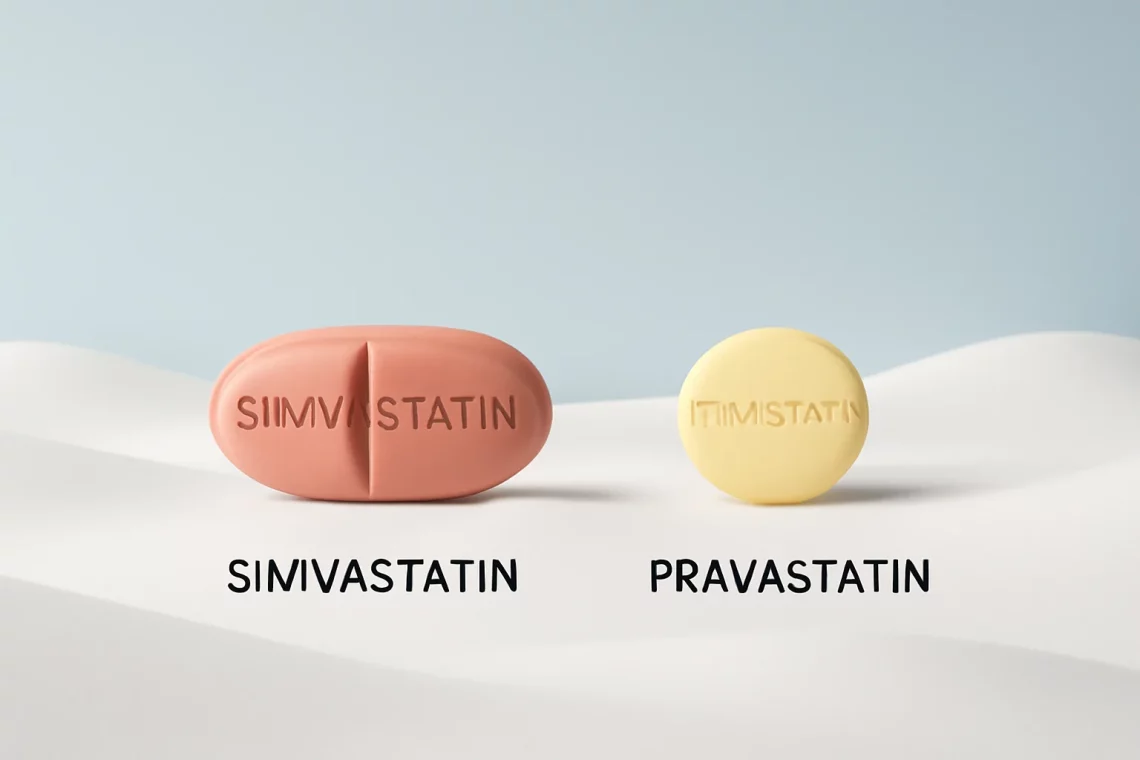-
Simvastatin vs Pravastatin: Which Statin Is Right for You?
Cholesterol management is a vital aspect of maintaining heart health, especially in an age where lifestyle diseases are on the rise. Among the various medications available to manage cholesterol levels, statins are among the most commonly prescribed. Simvastatin and pravastatin are two prominent members of this drug class, known for their effectiveness in lowering low-density lipoprotein (LDL) cholesterol, often referred to as “bad” cholesterol. Both medications work by inhibiting an enzyme that plays a central role in cholesterol production in the liver, thus helping reduce the overall cholesterol levels in the bloodstream. Understanding the nuances between simvastatin and pravastatin can empower patients and healthcare providers to make informed decisions tailored…
-
Simvastatin vs Pravastatin: Which Statin is Right for You?
Cholesterol management is a critical aspect of maintaining overall health and preventing cardiovascular diseases. With an increasing number of individuals experiencing elevated cholesterol levels, the demand for effective treatments has surged. Among the most commonly prescribed medications for lowering cholesterol are statins, which work by inhibiting cholesterol production in the liver. Simvastatin and pravastatin are two popular options in this category, each with its own unique profile of benefits and side effects. Understanding the differences between these two medications can empower patients to make informed decisions about their treatment options. This article delves into the mechanisms, benefits, and potential side effects of simvastatin and pravastatin, providing insights that are essential…
-
Amlodipine vs Nifedipine: Which is Better for Your Heart Health?
Amlodipine and nifedipine are both medications used primarily in the management of hypertension and certain forms of angina. As calcium channel blockers, they work by relaxing the blood vessels, allowing for improved blood flow and reduced strain on the heart. Although they share a common mechanism, the two medications differ in their pharmacological properties, indications, and side effects. Understanding these differences can help patients and healthcare providers make informed decisions regarding the best treatment options. Hypertension, often referred to as high blood pressure, is a chronic condition that can lead to severe health complications if not managed properly. The prevalence of hypertension has been on the rise, prompting the need…
-
Rosuvastatin vs Atorvastatin: Which Statin is Right for You?
The management of cholesterol levels has become a cornerstone of cardiovascular health. With the increasing prevalence of heart disease, individuals are often seeking effective ways to manage their lipid profiles. Among the most commonly prescribed classes of medication for this purpose are statins, which include popular options like Rosuvastatin and Atorvastatin. Both drugs have been extensively studied and are known for their ability to lower low-density lipoprotein (LDL) cholesterol, often referred to as “bad” cholesterol. The significance of maintaining optimal cholesterol levels cannot be overstated, as it plays a critical role in preventing heart attacks and strokes. Despite their similar purposes, Rosuvastatin and Atorvastatin differ in their mechanisms of action,…
-
Rosuvastatin vs Atorvastatin Which Statin is Right for You
High cholesterol levels are a common health concern that can lead to serious cardiovascular diseases if not properly managed. As a result, statins have become one of the most widely prescribed classes of medications aimed at lowering cholesterol levels. Among the various statins available, Rosuvastatin and Atorvastatin are two of the most prominent options. Both medications have shown efficacy in reducing low-density lipoprotein (LDL) cholesterol, often referred to as “bad” cholesterol, while simultaneously improving high-density lipoprotein (HDL) cholesterol, or “good” cholesterol. The decision between Rosuvastatin and Atorvastatin can be influenced by a variety of factors including the specific cholesterol profile of the patient, their overall health condition, and potential side…



















